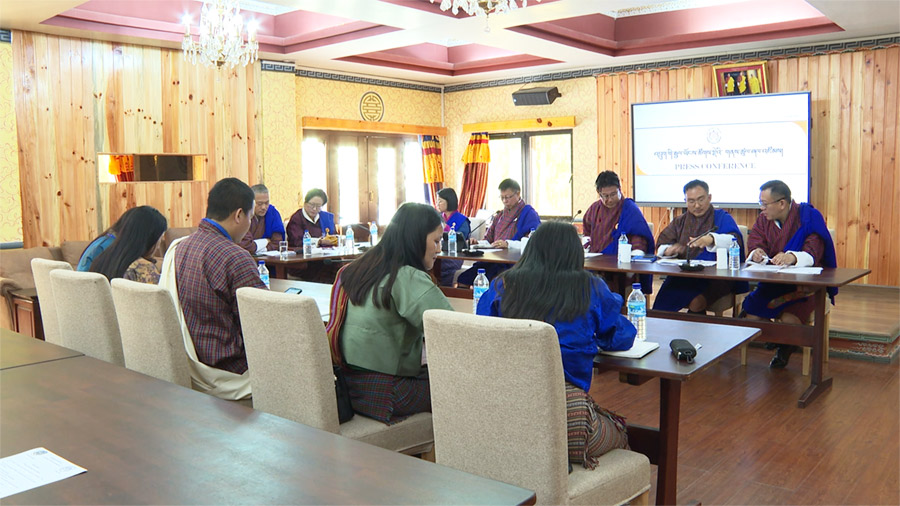
The pressing issue of increasing fallow farmland and empty rural houses or gungtongs will be tabled at the National Council, which will commence on Wednesday. The House of Review’s Good Governance Committee shared brief findings of its review report on the matter during a media briefing today.

The committee’s review report on fallow farmland and gungtong shows that of the total seven per cent arable land in the country only three per cent is being cultivated.
This leaves about 66,000 acres of arable land fallow.
In addition, the chairperson of the Good Governance Committee said that nearly 6,000 houses are abandoned nationwide.
Over 4,500 gungtongs are located in the six eastern districts of Lhuentse, Monggar, Trashigang, Trashi Yangtse, Pema Gatshel, and Samdrup Jongkhar.
“We have identified the key factors contributing to this issue and have formulated recommendations to address it in both the short and long term. The recommendations will be presented in detail during the upcoming session,” said Phuntsho Rapten, Chairperson of the Good Governance Committee.
He added that the last five years saw an additional 900 gungtongs in the country.
The chairperson said that if left unattended, the issue of increasing gungtong and fallow farmland affects local crop production, which could lead to increased food imports.
Among other issues, the National Council’s Special Committee for Education will also present its interim review report on education-related legislation to improve the quality of education in the country.
“Currently, the education ministry lacks an Act and operates under executive orders and draft education guidelines of 2018. We need to solidify these policies and improve our education system,” said Tshering Tshomo, Deputy Chairperson of the Special Committee for Education.
She added improving the quality of education is important to ensure that Bhutanese students become globally competent.
During the summer session, the National Council will discuss the review report on compensation-related policies for human-wildlife conflicts and crops damaged due to natural calamities, and the state of persons with disabilities.
Additionally, interim review reports on the Alternative Dispute Resolution Act of Bhutan 2013, and rural credit accessibility will also be tabled for discussion.
Namgay Dema
Edited by Phub Gyem








